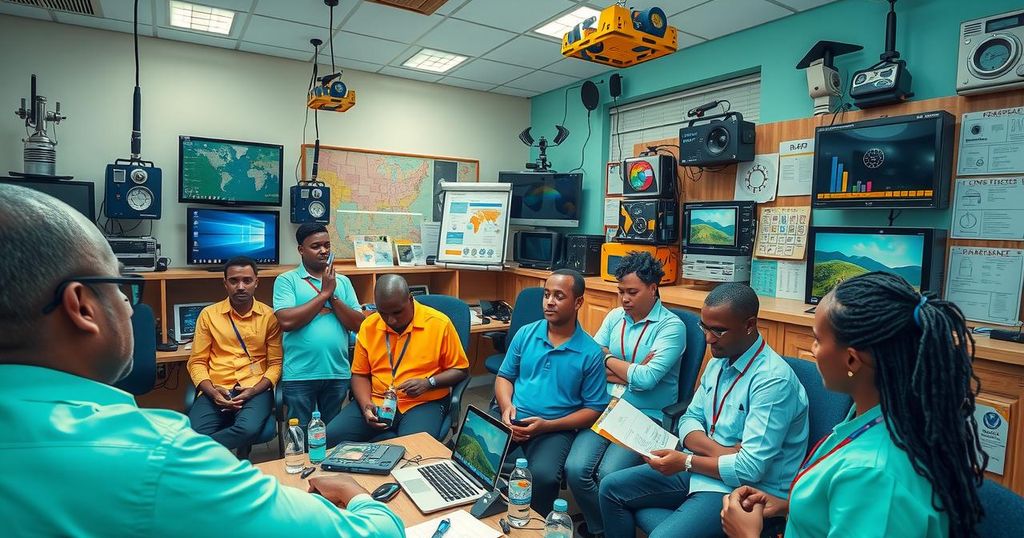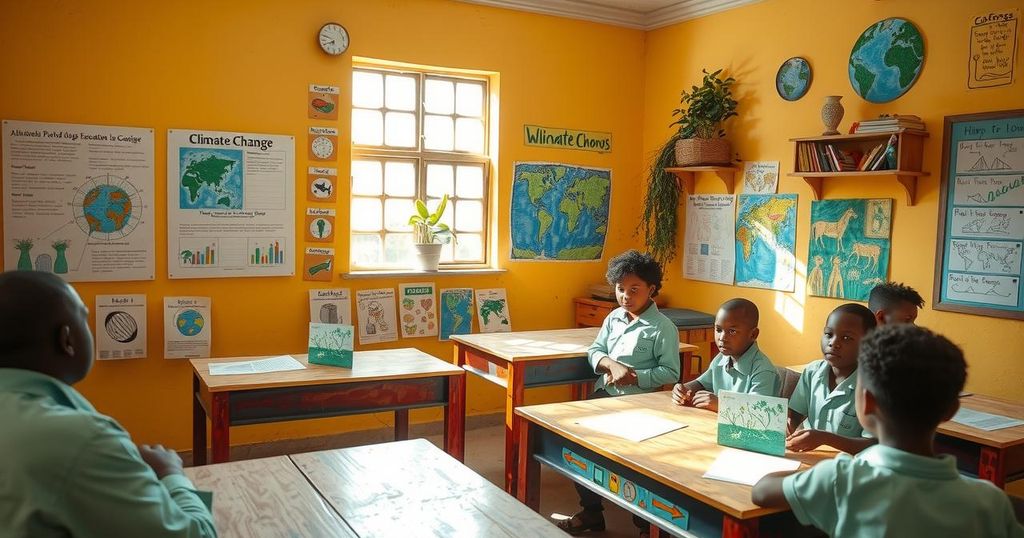Understanding Regional Climate Change Impacts: A Call for Action and Adaptation
Recent climate research indicates significant regional changes due to climate change, including intensified monsoons, stronger storm activity in northwestern Europe, and alterations in precipitation patterns at the poles. Increased frequency and severity of ENSO events contribute to global weather volatility, while rising temperature extremes pose serious risks to agriculture and public health. Enhanced collaboration between scientists and policymakers is essential for developing effective adaptation strategies.
Climate change is increasingly influencing regional climates worldwide, necessitating urgent attention to its impacts. Recent findings suggest that future monsoon patterns might intensify, primarily due to reduced aerosol emissions and escalating greenhouse gas concentrations. This poses a significant risk of floods, landslides, and diminished agricultural yields across vulnerable regions. Moreover, advanced climate modeling has indicated a potential strengthening of storm tracks into northwestern Europe, which could lead to heightened occurrences of extreme storms, characterized by strong winds and flooding, thereby jeopardizing essential infrastructure. At the polar regions, a notable trend is expected where a greater proportion of precipitation will fall as rain rather than snow. This shift may exacerbate ice destabilization, contributing to rising sea levels. Furthermore, events associated with the El Niño Southern Oscillation (ENSO), which historically have led to varied catastrophic weather phenomena like floods and heatwaves, are projected to intensify in both frequency and severity within the next two decades. Globally, temperature extremes are on the rise, often manifesting as combined high heat and humidity, which adversely affects agriculture by decreasing crop yields and increasing health risks among vulnerable populations. To effectively address these emerging challenges, it is imperative that climate adaptation strategies incorporate robust communication between scientific communities and decision makers, ensuring that climate models are aligned with diverse policy mandates. Leaders in climate research emphasize the necessity of unraveling the intricate connections between climate change and extreme weather events. Enhanced understanding of atmospheric circulation’s reactions to warming, particularly through coupled ocean-atmosphere interactions, is deemed crucial for sharpening regional climate forecasts. A synthesis of regional climate data has illuminated significant emerging signals, highlighting intensified monsoons, altered storm trajectories, and shifts in precipitation at the poles. These developments underscore the urgent need for localized data to guide effective climate policies, aimed at safeguarding communities against escalating climate risks.
The discussion surrounding regional climate change impacts is centered on the pressing need for detailed understanding and adaptation strategies. Climate change manifests uniquely across different regions, making the examination of specific local effects crucial. This article synthesizes recent findings on how changes in weather patterns—such as intensified monsoons, altered storm pathways in northwestern Europe, and precipitation changes in polar regions—pose serious risks to environmental stability and community welfare. Furthermore, the future increase in ENSO event severity illustrates the broader implications of climate variability for global weather patterns.
In summary, the regional implications of climate change present serious challenges that demand immediate action. The anticipated intensification of monsoons, shifting storm tracks, and changes in precipitation patterns are key factors that threaten both community resilience and environmental stability. A collaborative approach that bridges the gap between scientific research and policymaking is essential to devise effective strategies that adapt to these changes and protect vulnerable populations. Enhanced regional climate projections and localized data will be vital for developing policies aimed at mitigating the impacts of climate change and ensuring sustainable futures for affected communities.
Original Source: www.frontiersin.org




Post Comment